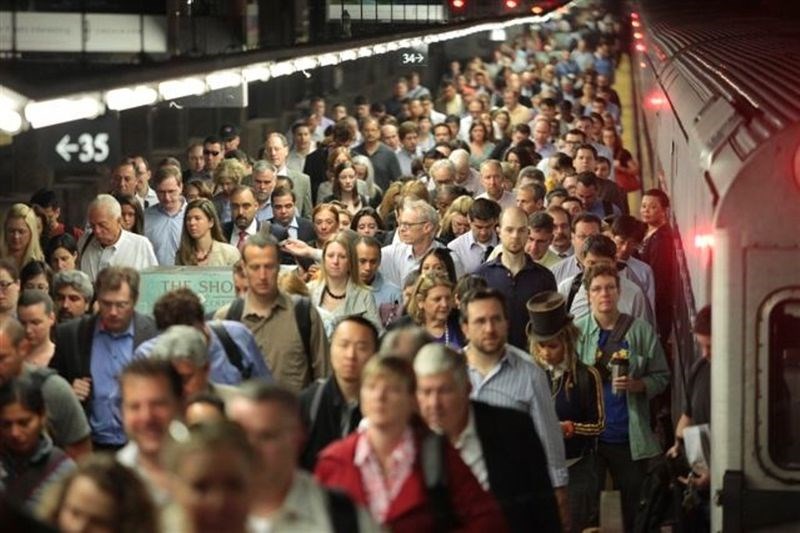Survey reveals that subway delays particularly affect residents in lower-income communities, impacting riders' financial security and personal lives
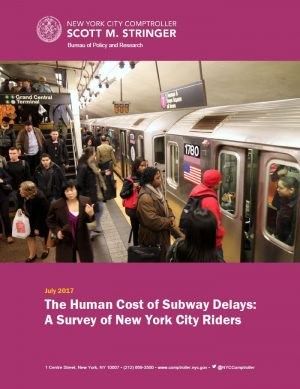
New York City Comptroller Scott M. Stringer released on Sunday a report highlighting the effects of subway delays on people's lives and livelihoods. The results of a major citywide survey, gathered from more than 1,200 subway riders at 143 stations, illustrated widespread dissatisfaction with service and revealed that residents in lower-income communities are more likely to be affected by subway delays than those living in higher-income areas.
"This is a crisis — delays are rising, service is declining and New Yorkers are frustrated like never before. What we show here is that behind every delay, there's a human cost, and behind every service disruption, there are lives affected," said Comptroller Stringer. "Inconsistent and delayed service is impacting New Yorkers in big and small ways, each and every day."
The survey showed that delays are affecting New Yorkers' job and financial security as well as their personal lives. Over the last three months alone, according to survey takers, delays caused 74 percent of them to be late for a work meeting; 22 percent to be late for a job interview; 18 percent to be reprimanded by their supervisors; 13 percent to lose wages and 2 percent to be fired from a job. As a result of subway delays many commuters felt forced to switch to alternative forms of transportation such as taking a taxi or a bus, driving their own vehicle, biking or walking to work.
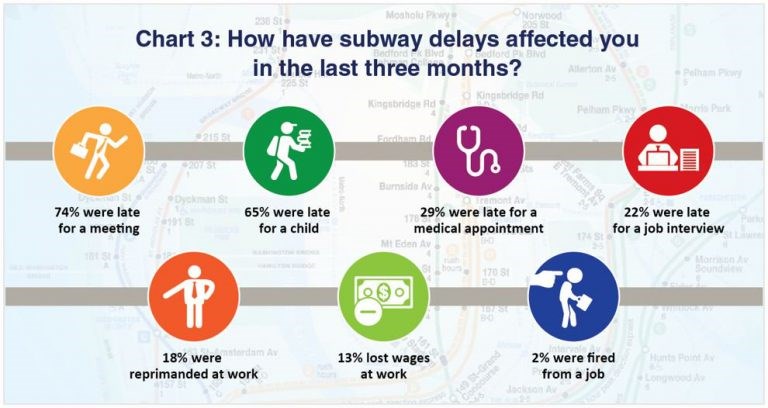
The report also illuminated that poor service disrupted the personal lives of subway riders outside of work: 65 percent of respondents said that delays had caused them to be late to pick-up, drop-off or attend a child's function, while 29 percent were late for a medical appointment.
Overall, 71 percent of subway riders reported significant delays at least half the time they used the subways. When asked to grade the subway system 14 percent of respondents graded it an "F", 24 precent graded it a "D" and 35 percent graded it a "C"; nearly three-quarters of survey takers graded service a "C" or lower, and one out of seven riders gave the subway a failing grade.
The results of the survey show: late trains are affecting those from lower-income zip codes more than those from wealthier neighborhoods; 42 percent of respondents from lower income areas experienced significant delays "Always" or "More than Half the Time," compared to 34 percent of those from higher income zip codes.
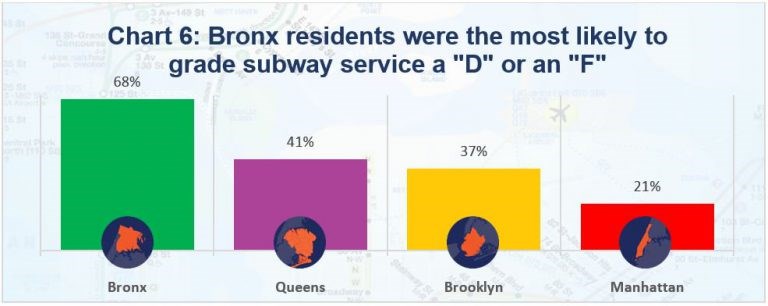
Residents outside of Manhattan reported far worse service, with 68 percent of Bronx respondents grading subway service a "D" or an "F," compared to 41 percent of Queens residents, 37 percent of Brooklynites, and 21 percent from Manhattan. In the Bronx, 54 percent of respondents experienced delays "More than Half of the Time" or "Always," compared to 45 percent of Queens residents, 40 percent from Brooklyn and 25 percent of Manhattanites.
The report also makes mention of the causes of the decline of services: issues such as overcrowding and the failing infrastructure of an outdated system, ill-equipped to handle growing ridership. Yet, much needed work and repairs, such as replacing signals, electrical systems and train cars throughout the subway system, are still decades away.
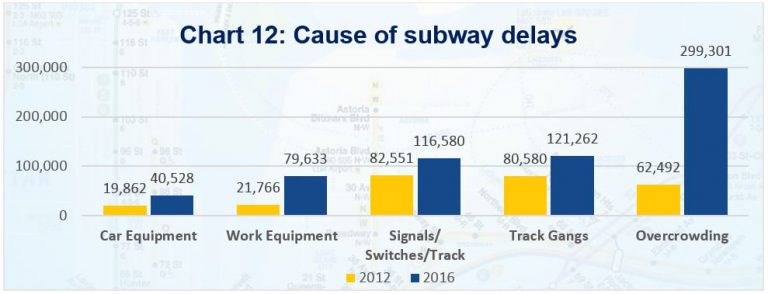
"This is a challenge that did not start overnight and won't be fixed overnight," said Stringer. "We have a signal system that is 70 years old, cars that are some of the oldest in the world, and overcrowding that make New Yorkers feel jam-packed like sardines. A failure to invest decades ago led us to where we are today. Let there be no doubt that we need an all-hands-on-deck approach now. New York City's ability to stay on top in this century — and the next — hinges on the quality of our transportation system."
The report shows clearly: increased gridlock, unplanned transit expenses, job insecurity, missed appointments - declining subway service has a dramatic effect on the city and its residents.

